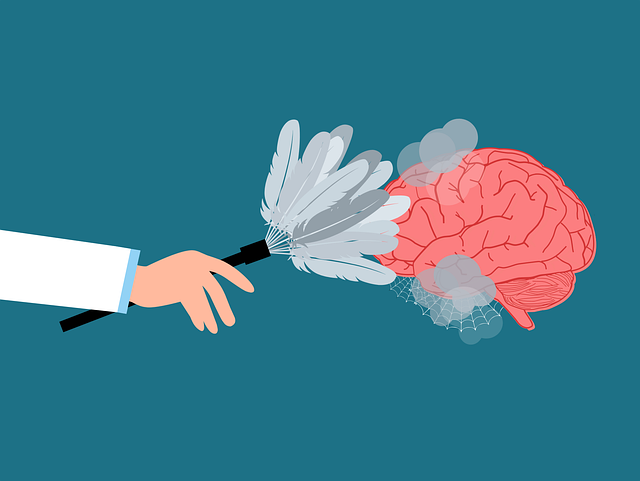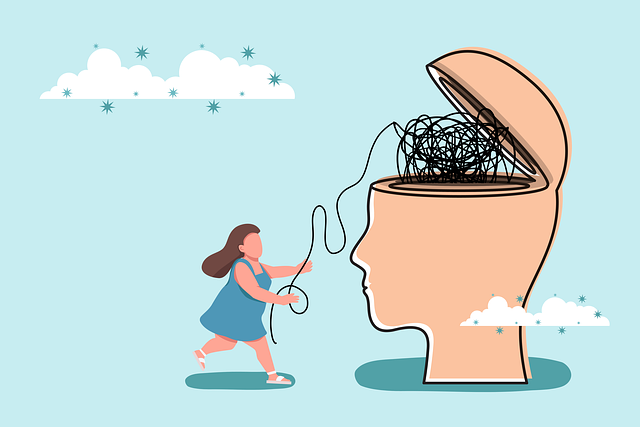Mental wellness involves emotional, psychological, and social well-being, improved through self-care practices like Compassion Cultivation and Stress Management Workshops. Identifying personal needs is crucial for crafting a meaningful self-care routine, integrating hobbies, exercise, mindfulness, and trauma support if required. Arvada Functional Neurological Disorder Therapy (AFNDT) techniques, focusing on neurological imbalances and neuroplasticity, enhance cognitive functions and emotional stability through activities like mindfulness exercises and sensory integration. Personalized self-care routines begin with evaluating lifestyle and emotional cues, incorporating practices like mindfulness meditation. Regular review and flexibility are essential for maintaining these routines, balancing consistency with adaptability to manage conditions like functional neurological disorder (FND).
Developing a mental wellness self-care routine is essential for overall well-being. This article guides you through the process, from understanding mental wellness and self-care to crafting a personalized routine. We explore techniques like Arvada Functional Neurological Disorder Therapy to alleviate symptoms and promote balance. Learn how to identify your needs, incorporate effective practices, sustain progress, and adjust as needed. Embrace a holistic approach to transform your mental health journey.
- Understanding Mental Wellness and Self-Care
- Identifying Personal Needs and Priorities
- Incorporating Arvada Functional Neurological Disorder Therapy Techniques
- Crafting a Customized Routine
- Sustaining and Adjusting Your Self-Care Routine Over Time
Understanding Mental Wellness and Self-Care

Mental wellness is a holistic concept encompassing our emotional, psychological, and social well-being. It’s about recognizing and caring for ourselves in every aspect of life. Self-care, an integral part of maintaining mental wellness, involves activities that nurture and recharge us, enabling us to navigate challenges with resilience. It’s not merely treating symptoms but actively fostering a healthy mind and soul.
At Arvada Functional Neurological Disorder Therapy, we understand the importance of self-care in managing mental health. Compassion Cultivation Practices, for instance, teach individuals to cultivate kindness and empathy towards themselves, reducing stress and promoting emotional balance. Our Stress Management Workshops Organization offers valuable tools and techniques to cope with daily stressors effectively. By integrating these practices into daily routines, individuals can improve their overall mental wellness, fostering a sense of equilibrium and enhancing their ability to navigate life’s ups and downs.
Identifying Personal Needs and Priorities

Identifying your personal needs and priorities is a crucial step in developing a meaningful mental wellness self-care routine. This process involves introspection and an understanding of what brings you joy, reduces stress, and promotes a sense of balance in your life. It’s about recognizing that everyone has unique requirements when it comes to self-care; what works for one person might not be suitable for another. For individuals with Arvada Functional Neurological Disorder Therapy needs, this could mean prioritizing sensory processing activities or specific exercises tailored to their condition.
By evaluating your lifestyle, emotions, and physical health, you can determine the areas that require attention and create a self-care plan aligned with your personal goals. This might include setting aside time for hobbies, engaging in regular physical activity, practicing mindfulness techniques, or seeking Trauma Support Services if past experiences impact your mental wellness. Incorporating these strategies into your daily routine, with the guidance of qualified professionals like healthcare providers offering Cultural Competency Training and Mental Health Education Programs Design, can significantly contribute to overall well-being.
Incorporating Arvada Functional Neurological Disorder Therapy Techniques

Incorporating Arvada Functional Neurological Disorder Therapy (AFNDT) techniques into your self-care routine can significantly enhance mental wellness. AFNDT focuses on addressing underlying neurological imbalances to improve cognitive functions and emotional stability. By engaging in activities that stimulate neuroplasticity, such as mindfulness exercises and sensory integrations, individuals can develop a more robust emotional intelligence and better coping mechanisms for stress management.
This therapeutic approach encourages the development of empathy-building strategies, fostering deeper connections with oneself and others. Through AFNDT, one learns to recognize and regulate their emotional responses, leading to improved overall mental health. Stress Management Workshops Organization often incorporates AFNDT principles in their programs, helping participants gain practical tools for navigating life’s challenges with increased resilience and a heightened sense of well-being.
Crafting a Customized Routine

Crafting a customized mental wellness self-care routine is a transformative process unique to each individual. It involves identifying personal triggers, preferences, and needs, which can be best achieved through exploration and trial. Start by evaluating your current lifestyle, work schedule, and emotional cues. Consider incorporating practices like mindfulness meditation, tailored to manage stress and anxiety, as recommended by Arvada Functional Neurological Disorder Therapy experts. This may include activities such as deep breathing exercises or guided visualizations.
Personalizing your routine further involves selecting self-care activities that resonate with you. For instance, some find solace in creative pursuits like journaling, which can be a powerful tool for processing emotions and thoughts, as highlighted in our Mental Wellness Podcast Series Production. Others may prefer physical activities like yoga or walking in nature, known to boost mood and reduce symptoms of depression. Experimentation is key; try different techniques and exercises to discover what works best for you, ensuring your self-care routine becomes a sustainable and enjoyable part of your daily life, even incorporating simple practices like mindful eating as suggested by our Community Outreach Program Implementation.
Sustaining and Adjusting Your Self-Care Routine Over Time

Maintaining a self-care routine is an ongoing process that requires dedication and flexibility. As you establish your mental wellness practices, it’s important to recognize that life circumstances change, and so should your routine. What works in one season of your life might not be suitable during another, especially if you’re managing conditions like functional neurological disorder (FND). Regularly reviewing and adjusting your self-care is crucial for long-term sustainability.
Consider setting specific, achievable goals for each aspect of your routine, whether it’s exercise, mindfulness practices, or social connections. Incorporate activities that bring you joy and help manage stress levels. Over time, as you gain more insight into what works best for your mental wellness, tailor your routine to align with these discoveries. The key is balance—balancing the need for consistency with the flexibility to adapt to life’s twists and turns, much like Arvada Functional Neurological Disorder Therapy adapts to individual needs.
Developing a mental wellness self-care routine is a transformative journey that empowers individuals to take control of their well-being. By understanding the importance of mental health and incorporating tailored practices, such as Arvada Functional Neurological Disorder Therapy techniques, one can create a personalized roadmap for resilience and balance. Through consistent effort and periodic adjustments, this routine becomes a sustainable practice, fostering a healthier and more fulfilling life.














